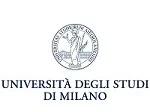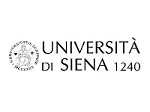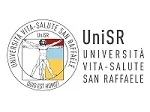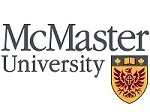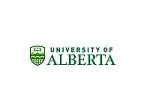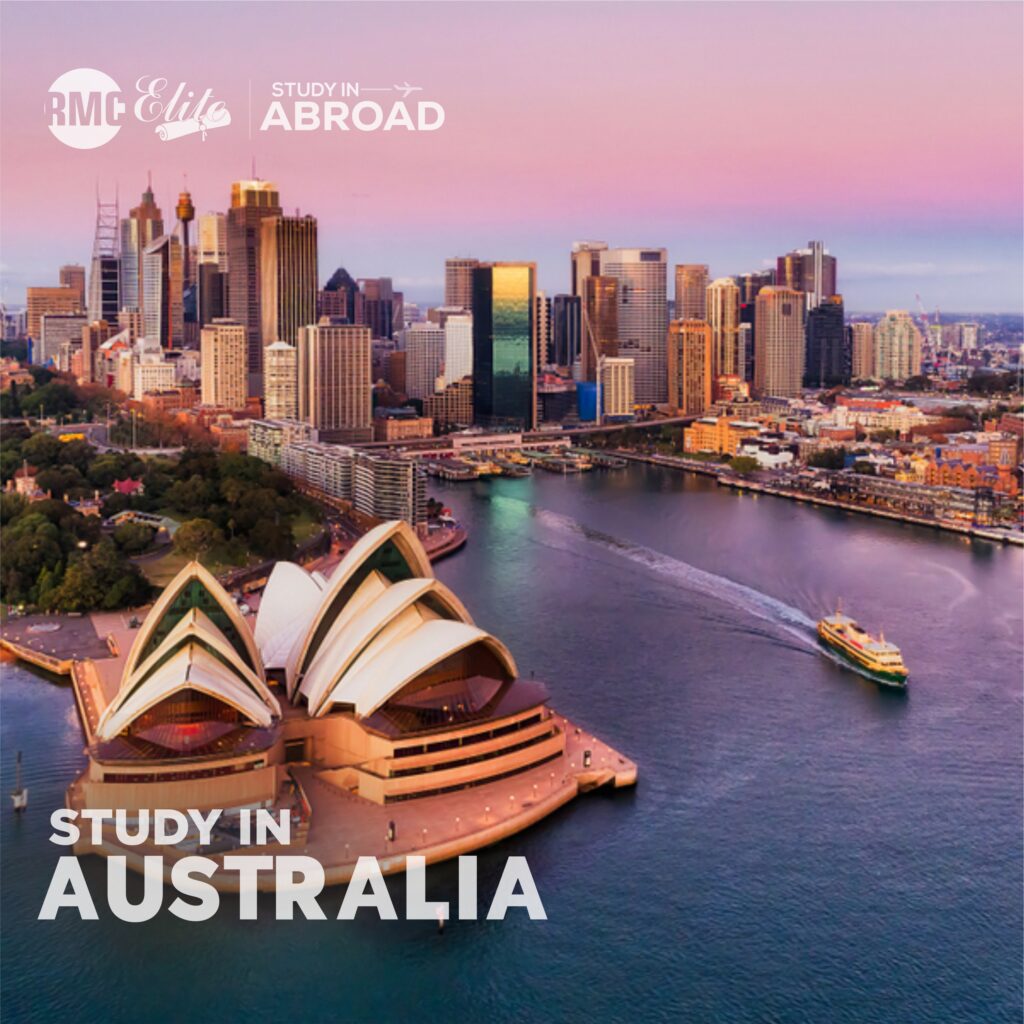
About Australia
Studying in Australia is a popular choice among international students due to the country’s excellent education system, multicultural society, and high standard of living. Australian universities offer a wide range of programs at the undergraduate and graduate levels, with an emphasis on practical learning and research. The country’s vibrant culture, diverse population, and stunning natural scenery make it an exciting and rewarding destination for international students. Additionally, students can take advantage of Australia’s many work and career opportunities. Overall, studying in Australia is an excellent way for students to gain valuable skills, experience a new culture, and prepare for a successful future.
Brief Overview of Studying in Australia as an Indian Student
Australia is a popular destination for Indian students seeking to pursue higher education overseas. The country offers a diverse range of universities and courses that cater to the needs of Indian students, providing a high standard of education, research opportunities, and a multicultural environment.
To study in Australia, Indian students need to meet certain requirements, such as obtaining a student visa, meeting English language proficiency requirements, and fulfilling academic prerequisites. There are also various scholarships and grants available to help international students, including Indian students, with tuition fees and living expenses.
Australian universities provide excellent support services to international students, including Indian students. These services include academic support, accommodation assistance, and career guidance, among others. The universities also have a welcoming environment and support cultural diversity, making it easier for Indian students to adjust to the new environment.
Importance of Studying in Australia
First, Australia is home to some of the world's best universities, with a strong reputation for research and innovation across various fields. Students who study in Australia can benefit from a high-quality education that can help them gain valuable skills and knowledge in their chosen field.
Second, studying in Australia provides students with the opportunity to experience a multicultural society and develop a global perspective. Australia is a diverse country with a welcoming and inclusive environment, and students can interact with people from different cultural backgrounds, learn about different cultures, and make international connections.
Third, studying in Australia can provide students with excellent career prospects. Australian universities have strong links with industry and provide students with opportunities to undertake work placements, internships, and other professional development activities. Students can also take advantage of Australia's strong and growing economy, which provides many job opportunities across various sectors.
Fourth, studying in Australia can also provide students with an opportunity to explore the country's beautiful natural scenery and diverse landscape. Australia has stunning beaches, forests, mountains, and deserts, providing students with ample opportunities for outdoor activities and adventures.
Benefits of Study in Australia
Indian students in Australia can benefit from a high-quality education system, access to a diverse range of courses and programs, opportunities for research and work experience, and a welcoming and multicultural society. Additionally, students may have access to financial assistance, scholarships, and other support services to help them succeed academically and personally. Graduates may also be eligible for post-study work visas and opportunities for permanent residency in Australia.
Australia Education System
The education system in Australia is renowned globally for its high quality and innovation. It is a decentralized system, with each state and territory having its own education system and government. The education system in Australia comprises three main sectors:
- Primary and Secondary Education : Primary education in Australia usually starts at the age of five or six and lasts for six years. Secondary education usually starts at the age of 12 or 13 and lasts for six years. The curriculum in primary and secondary education focuses on developing core skills such as literacy, numeracy, critical thinking, and problem-solving.
- Vocational Education and Training (VET) : VET provides students with practical skills and knowledge to prepare them for employment in various industries. It offers qualifications such as certificates, diplomas, and advanced diplomas across various fields.
- Higher Education : Australia has 43 universities offering undergraduate and postgraduate programs across various fields. The higher education system in Australia is based on a credit point system, with each course comprising a certain number of credit points. The higher education sector focuses on research, innovation, and practical learning experiences.
Quality of Education in Australia
The quality of education in Australia is globally recognized as being of a high standard. Australian universities are consistently ranked among the best in the world, with a strong focus on practical learning, research, and innovation. The education system in Australia is regulated by the Australian government, ensuring the quality of education across all education sectors. One of the significant advantages of studying in Australia is the strong links between universities and industry. Australian universities collaborate with various industries to provide students with work placements, internships, and other opportunities to gain practical experience and develop the necessary skills for their chosen careers. In addition, the education system in Australia is multicultural, providing students with a diverse and inclusive learning environment. Students from different cultural backgrounds can learn from each other and gain a global perspective, preparing them to succeed in an increasingly globalized world. Australian universities also offer a range of support services to ensure that students have a positive learning experience. This includes academic support, such as tutoring and study skills workshops, as well as personal support, such as counselling and mental health services.
Career Opportunities
Australia offers a wide range of career opportunities across various sectors, making it an attractive destination for international students. Some of the most popular sectors for employment in Australia include:
- Healthcare : Australia has a strong healthcare system, with a high demand for healthcare professionals such as doctors, nurses, and allied health professionals.
- Engineering : Australia has a strong focus on infrastructure development, making engineering a popular career choice. Engineers in Australia can work in fields such as civil engineering, electrical engineering, and mechanical engineering.
- Information Technology : Australia has a growing technology sector, with a high demand for skilled professionals in fields such as software development, data analysis, and cybersecurity.
- Education : Australia has a strong education sector, with a high demand for qualified teachers and other education professionals.
- Business and Finance : Australia has a strong and stable economy, making it an attractive destination for businesses. Professionals in fields such as accounting, finance, and marketing are in high demand.
Cultural Exposure
Studying in Australia provides students with unique cultural exposure that can broaden their horizons and enrich their personal and professional lives. Australia is a multicultural society that welcomes people from all over the world. As a result, international students can experience a diverse range of cultures and perspectives, which can be a life-changing experience. Australian universities have a diverse student population, with students from over 190 countries studying in Australia. This provides students with an opportunity to learn from different cultures and gain a global perspective. Students can participate in cultural events, festivals, and activities organized by universities or communities, providing them with an opportunity to immerse themselves in Australian culture. Cultural exposure gained through studying in Australia can be a valuable asset for students, both personally and professionally. It can help them develop intercultural competencies, enhance their communication skills, and provide them with a global perspective that can be beneficial in a range of career paths.
Eligibility and Admission Requirements for Indian Students
Eligibility and admission requirements for Indian students depend on the level of education and the institution to which they are applying. Generally, students need to have completed their previous level of education with minimum marks in required subjects and may need to take entrance exams. International students also need a student visa, an offer of admission from a recognized educational institution, a valid passport, and sufficient funds. Requirements vary by institution and program, so it's important to check specific requirements.
Academic Requirements to Study in Australia for Indian Students
- Higher Secondary Education : Students must have completed their higher secondary education (12th grade) or equivalent, with a minimum percentage of marks in the required subjects for their chosen program.
- English Language Proficiency : Students must demonstrate their English language proficiency by achieving a minimum score on an approved English language proficiency test, such as IELTS, TOEFL, or PTE.
- Specific Program Requirements : Some programs may have specific academic requirements, such as prerequisite subjects or work experience.
- Postgraduate Programs : For postgraduate programs, students must have completed their undergraduate degree with a minimum percentage of marks in the required subjects. Some programs may also require students to have relevant work experience.
English Language Proficiency Requirements
In Australia, most universities and colleges require international students, including those from India, to demonstrate their English language proficiency by achieving a minimum score on an approved English language proficiency test. The most commonly accepted tests are:
- International English Language Testing System (IELTS)
- Test of English as a Foreign Language (TOEFL)
- Pearson Test of English (PTE)
- Cambridge English Advanced (CAE)
The required minimum score varies depending on the institution and the program, but in general, students need to achieve a minimum score of 6.0 to 7.0 on the IELTS test or equivalent on other tests to be considered for admission. Some institutions may also offer English language courses or require students to complete an English language program before starting their academic program.
Application Process and Deadlines
The application process and deadlines for international students, including those from India, vary between institutions and programs in Australia. However, here are some general guidelines:
- Research : Students should research their desired program and institution and make sure they meet the academic requirements and English language proficiency requirements.
- Application : Students can typically apply online through the institution's website or through a centralized application portal such as the Australian Government's Study in Australia website. The application may require students to provide personal information, academic transcripts, English language test scores, and a statement of purpose.
- Documents : Students must also submit supporting documents such as a passport, proof of English language proficiency, and financial documents.
- Application Fee : Some institutions may require an application fee, which varies depending on the institution and program.
Deadlines for international student applications typically fall between September and January for courses starting in Semester 1 (February to June) and April to July for courses starting in Semester 2 (July to November).
Visa Requirements and Application Process
To study in Australia, Indian students are required to obtain a student visa. Here is a general overview of the visa requirements and application process:
- Offer of Admission : Students must first receive an offer of admission from a recognized educational institution in Australia.
- Genuine Temporary Entrant : Students must also demonstrate that they are a genuine temporary entrant to Australia, which means that they intend to stay in Australia temporarily for the purpose of studying and then return to their home country.
- Financial Requirements : Students must provide evidence that they have sufficient funds to cover their tuition fees and living expenses during their stay in Australia.
- Health and Character Requirements : Students must meet the health and character requirements set by the Australian government.
- Visa Application : Students can apply for a student visa online through the Department of Home Affairs website. The application requires students to provide personal information, passport details, financial documents, and health and character certificates.
- Visa Fee : Students must also pay the visa application fee, which varies depending on the type of visa and the length of stay.
- Visa Processing : The visa processing time may vary, but it typically takes between four to six weeks.
Top Universities for Indian Student in Australia
Australia has several highly-ranked universities that offer quality education and a multicultural learning environment for Indian students.
Top Universities and Ranking
| Universities Name | QS World University Rankings 2022 |
| The University of Melbourn | 27th |
| The Australian National University | 67th |
| The University of Sydney | 28th |
| The University of New South Wales | 37th |
| Monash University | 45th |
| The University of Queensland | 36th |
| The University of Western Australia | 87th |
Campus life and Facilities
- Accommodation : Most universities offer on-campus accommodation or have partnerships with student housing providers.
- Libraries : Australian universities have extensive libraries with a vast collection of books, journals, and online resources.
- Sports facilities : Universities have sports facilities such as gyms, basketball and tennis courts, and swimming pools.
- Dining options : Campuses have multiple dining options, including cafes, food courts, and restaurants.
- Student clubs and societies: There are numerous student-run clubs and societies, including cultural, academic, and sports-related groups.
- Career services : Universities offer career services, including workshops, career counselling, and job fairs, to help students find employment opportunities.
- Health and wellness services : Universities have health clinics and wellness centres, providing services such as medical consultations, mental health support, and fitness classes.
Best Courses to Study in Australia for Indian Students
Choosing the best course to study in Australia for Indian students can depend on several factors such as personal interests, career aspirations, and available resources. However, here are some popular courses that Indian students tend to pursue in Australia:
- Business and Management : Australia is known for its high-quality business schools, and studying business and management courses can open up various job opportunities in fields such as finance, marketing, and management.
- Information Technology : Australia has a robust IT industry, and studying courses related to computer science, information technology, or software engineering can provide excellent job prospects.
- Engineering : Australian universities offer world-class engineering programs in various disciplines such as civil, mechanical, electrical, and aerospace engineering.
- Healthcare : Courses in healthcare such as nursing, medicine, and dentistry are highly sought after by Indian students due to the excellent education system and job prospects.
- Hospitality and Tourism : Australia is a popular destination for tourists, and studying courses related to hospitality and tourism management can lead to exciting job opportunities in the industry.
Financial Aid and Scholarship for Indian Students
Financial aid and scholarships for Indian students studying in Australia are available from a variety of sources, including universities, government agencies, and private organizations. These programs can help cover tuition, living expenses, and other costs associated with studying abroad. It is important for students to research and apply for these opportunities early in the application process, as many have strict deadlines and eligibility requirements.
Types of Financial aid Available
There are various types of financial aid available for students, including:
- Scholarships : Awards based on academic achievement, merit, or specific criteria.
- Grants : Funds given to students based on financial need or other criteria.
- Work-Study Programs : Programs that allow students to work part-time on campus or in the community to earn money to pay for their education.
- Loans : Funds borrowed that must be paid back with interest after graduation.
- Fellowships : Similar to scholarships, but often awarded for postgraduate or research studies.
- Tuition Waivers : A reduction in tuition fees provided by the institution.
- Financial Assistance : Programs offered by colleges or universities to students with financial needs, which may include aid in the form of grants or loans.
- Employer Sponsorship : Support provided by an employer to pay for an employee's education.
Scholarships for Indian Students
There are several scholarships available for Indian students to study in various countries, including:
- Commonwealth Scholarship and Fellowship Plan : Provides full funding for Indian students to study in the UK.
- Fulbright-Nehru Master's Fellowships : Offers full funding for Indian students to pursue a master's degree in the US.
- Australia Awards Scholarships : Offers full tuition fees, travel expenses, and a living allowance for Indian students to study in Australia.
- Inleaks Scholarships : Offers funds for Indian students to pursue postgraduate studies abroad in various fields.
- Aga Khan Foundation International Scholarship Programme : Provides funding for Indian students to pursue postgraduate studies in any country.
- Joint Japan World Bank Graduate Scholarship Program : Provides full funding for Indian students to study in Japan in fields related to development.
- Chevening Scholarships: Offers full funding for Indian students to pursue a master's degree in the UK.
Living in Australia as an Indian Student
Accommodation Option
There are several accommodation options available for Indian students in Australia, including:
- On-campus accommodation : Many universities offer on-campus accommodation, including dormitories and apartments, which provide a convenient and safe living option for students.
- Homestay : Homestay involves living with an Australian family, which can be a great way to learn about Australian culture and improve language skills.
- Private rentals : Private rentals include apartments, flats, and shared houses, which can be more affordable than on-campus accommodation but may require more effort to find.
- Hostels : Hostels are a budget-friendly option that offer shared rooms and communal spaces, making them ideal for students on a tight budget.
Cost of living
- Accommodation : Rent for a shared apartment can range from AUD $150 to $300 per week, and private rentals can be more expensive. On-campus accommodation and homestay options may cost more but include utilities and other amenities.
- Food : The cost of groceries and eating out can vary depending on the location and dietary choices. A weekly grocery budget can range from AUD $50 to $100, while a meal at a restaurant can cost around AUD $20 to $30.
- Transportation : Public transportation costs vary depending on the location, with a single trip costing around AUD $3 to $5. Owning a car can be expensive, including costs for registration, insurance, and fuel.
- Other expenses : Other expenses to consider include healthcare, entertainment, and personal expenses. International students also need to budget for visa fees, health insurance, and other study-related costs.
Food and Dining Option
Australia offers a diverse range of food options, including traditional Australian cuisine as well as international cuisine from around the world. Here are some food and dining options for Indian students in Australia:
- Indian restaurants : There are many Indian restaurants throughout Australia that offer a variety of regional Indian cuisine, including North Indian, South Indian, and Indo-Chinese dishes.
- Asian cuisine : Australia has a large Asian population, and there are many Asian restaurants that offer Chinese, Thai, Vietnamese, and Japanese cuisine, among others.
- Fast food : Fast food chains such as McDonald's, KFC, and Subway are widely available in Australia.
- Supermarkets : Supermarkets such as Coles and Woolworths offer a range of food options, including fresh produce, ready-made meals, and ingredients for cooking at home.
- Cooking at home : Cooking at home can be a great way to save money and explore Australian cuisine. There are many supermarkets and specialty stores that offer Indian ingredients and spices.
Visa Transportation and Travel
- Visa : Indian students require a student visa to study in Australia, which can be applied for online through the Australian Government's Department of Home Affairs. It is important to ensure that all visa requirements are met, including financial and health requirements.
- Transportation : Australia has a well-developed transportation system that includes buses, trains, and trams in major cities. Many universities also offer shuttle buses or other transportation options for students. International students can apply for a concession card, which offers discounted fares on public transport.
- Travel : Australia is a vast country with many popular travel destinations, including the Great Barrier Reef, Uluru, and the Great Ocean Road. Students can explore the country by plane, train, or bus. Domestic flights can be expensive, but there are often deals and discounts available. Students can also consider car rentals or sharing rides with friends.
Working While Study in Australia
International students in Australia are allowed to work part-time while studying, up to 40 hours per fortnight during the academic term and unlimited hours during term breaks. Here are some important points to keep in mind about working while studying in Australia as an Indian student:
- Visa restrictions : International students must hold a valid student visa and meet certain eligibility criteria to work part-time. It is important to check the visa conditions to ensure compliance.
- Types of jobs : International students can work in a variety of part-time jobs, including retail, hospitality, and administration. Some universities also offer work-study programs for students.
- Earnings : Part-time jobs in Australia typically pay between AUD $15 and $25 per hour, depending on the industry and location.
- Work-life balance : It is important to balance work and study commitments to ensure academic success. Students should also be mindful of their mental health and well-being.
Working part-time can help Indian students in Australia earn extra income, gain work experience, and improve language and communication skills. However, it is important to remember that studies should remain the primary focus, and to comply with all visa restrictions and work regulations.
Employment and Job Opportunities After Graduation
Australia offers a range of job opportunities for international students after graduation. The Australian job market is diverse, with opportunities in fields such as healthcare, engineering, finance, and technology. International students can take advantage of Australia's post-study work visa program, which allows graduates to work in Australia for up to four years after completing their degree. This provides an excellent opportunity for graduates to gain valuable work experience in their field of study, while also contributing to the Australian workforce. Networking, internships, and job fairs can also help international students secure job opportunities after graduation. Additionally, many universities offer career services to help students with job applications, resume writing, and interview preparation. Graduates who wish to stay in Australia permanently may also be eligible to apply for permanent residency through skilled migration programs.
Post-Study Work Visa
The Post-Study Work Visa program in Australia allows international students to work in Australia for a period of time after completing their studies. This program is designed to give international graduates an opportunity to gain valuable work experience in their field of study, while also contributing to the Australian workforce. The duration of the visa depends on the level of qualification obtained by the student.
Graduates with a Bachelor's or Master's degree are eligible for a two-year post-study work visa, while those with a Ph.D. are eligible for a four-year visa. This provides graduates with ample time to gain work experience, develop their skills, and explore career opportunities in Australia.
To be eligible for the Post-Study Work Visa program, international students must have completed a degree or diploma from an Australian institution, and meet other visa requirements such as health and character checks. Students who complete their studies in regional Australia may also be eligible for additional benefits, such as longer visa durations and access to skilled migration programs.
Job Market in the Australia for Indian Students
Australia's job market is diverse and offers a range of job opportunities for Indian students who are studying in Australia or who have recently graduated. Some of the popular fields for job opportunities include healthcare, engineering, finance, technology, and hospitality.
According to recent reports, the employment rate in Australia has been steadily increasing, with a current rate of over 74%. Additionally, the Australian Government has identified several industries that are expected to experience significant job growth in the coming years, including healthcare, construction, and education.
Indian students who have completed their studies in Australia can take advantage of the country's Post-Study Work Visa program, which allows them to work in Australia for a period of time after graduation. This provides an excellent opportunity for graduates to gain valuable work experience in their field of study and develop their professional networks.
Tips to Finding Employment After Graduation
Finding employment after graduation can be a challenging task, but there are several tips that can help international students increase their chances of securing a job in Australia:
- Start early : It is important to start looking for employment opportunities early, ideally before graduation. This allows students to research potential employers, attend job fairs, and network with professionals in their field.
- Utilize career services : Most universities in Australia offer career services and job placement programs to help students and graduates with job applications, resume writing, and interview preparation. It is important to take advantage of these resources to improve job prospects.
- Build a professional network : Networking is key to finding employment opportunities in Australia. Students can attend industry events, join professional associations, and connect with alumni and professionals in their field to build a network of contacts.
- Gain work experience : Part-time jobs, internships, and volunteering opportunities can provide valuable work experience and help develop the skills needed to succeed in the job market. This can also make a resume stand out to potential employers.
- Tailor job applications : It is important to tailor job applications to specific job postings and employers. This can involve customizing resumes and cover letters, highlighting relevant skills and experience, and researching the company and industry.
Admission Process to Study In Australia for Indian Students
The admission process to study in Australia for Indian students can vary depending on the institution and program they are applying to. However, here are some general steps:
- Research : Students should research the institutions and programs that they are interested in and make sure they meet the academic requirements and English language proficiency requirements.
- Application : Students can typically apply online through the institution’s website or through a centralized application portal such as the Australian Government’s Study in Australia website. The application may require students to provide personal information, academic transcripts, English language test scores, and a statement of purpose.
- Supporting Documents : Students must also submit supporting documents such as a passport, proof of English language proficiency, and financial documents.
- Application Fee : Some institutions may require an application fee, which varies depending on the institution and program.
- Assessment :The institution will assess the application and may request additional information or an interview.
- Offer of Admission: If the application is successful, the institution will provide the student with an offer of admission.
- Acceptance : The student must accept the offer of admission and pay any required fees.
- Visa Application : Once the student has accepted the offer of admission, they can apply for a student visa.
Why Take Admission Through RMC Elite Consultancy?
RMC Elite Consultancy is an experienced and reliable education consultancy that can assist international students in pursuing their education goals in Australia. Here are some reasons why taking admission through RMC Elite Consultancy can be beneficial:
- Expertise and experience : RMC Elite Consultancy has a team of experienced education consultants who have extensive knowledge of the Australian education system, universities, and courses. They can provide expert guidance and support to students in selecting the right course and institution to match their goals and interests.
- Admission and visa support : RMC Elite Consultancy can provide assistance with the entire admission process, including application submission, document verification, and visa processing. This can save students time and reduce the chances of errors or delays.
- Personalized support : RMC Elite Consultancy provides personalized support to students, which includes one-on-one counselling, course selection, and guidance on scholarships and financial aid. They also offer pre-departure orientation and ongoing support throughout the student’s stay in Australia.
- Comprehensive services : RMC Elite Consultancy offers a wide range of services to international students, including accommodation assistance, airport pickup, travel, and health insurance, and job placement support. This can provide students with a seamless transition to studying and living in Australia.
- Reputation and trust : RMC Elite Consultancy has a reputation for providing quality education consultancy services to international students. They have established a trust-based relationship with their clients, and their success stories can be seen in the testimonials of their satisfied clients.

